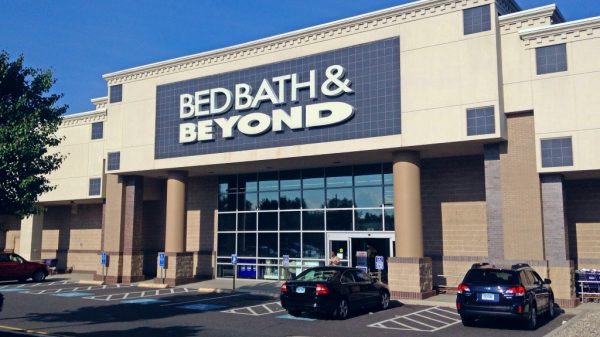
Real Estate: An Industry that Needs to Succeed
Many times the real estate industry gets blamed for a towns’ problems. Even recently in our local newspaper, I read that Realtors were “greedy” for supporting property rights of land owners to subdivide their property more than 5 times every three years. Mind you, this is after the real estate market collapse, after the stock market collapse and during the current employment collapse. One would think that real estate may actually look like a safer investment than the stock market in these times. But if a Realtor were to claim such a statement, we’d be labeled as ‘crazy’ or ‘greedy’. So, instead of pointing out how real estate tends to bounce up after stock markets collapse (remember the dot com bust?), I’ll just point out some basic contributions the real estate industry makes to a local economy. You can decide if it’s good enough for your town or not.
Real Estate Feeds Local Economies and Local Families
So many companies and individuals are feeding their families from Realtors’ entrepreneurial efforts
(I hope everyone realizes 95% of all Realtors are self-employed entrepreneurs). Here is a list of local businesses that feed their families by the efforts of the real estate industry:
– Contractors of all trades
– Appraisers
– Mortgage brokers and lenders
– Real estate brokers & agents (we have families too)
– Title companies
– Attorneys
– Inspectors
– Pest control
– Home Warranty Companies
– Appliance retailers
– Home improvement supply stores
– Gardening supply stores
In fact, it’s hard to think of a local business that doesn’t benefit from real estate growth.
– Restaurants (more people to dine & drink)
– Retail Stores (more shoppers = more sales tax too)
– City employees (permits, licenses, sales tax, etc…)
– County employees (fees, property taxes, etc…)
Be Proud to be a Realtor
Take pride in being a Realtor and be quick to remind people that you work hard to feed your family and in turn you help feed a local economy with opportunities to do the same.
Chaotic Good adventurer on a quest to optimize the lives of others. Husband & Father to Wolverines. Founder of RETSO + Managing Director at Path & Post.













































Paula Henry
November 10, 2008 at 10:38 pm
Recently one of the searches on my web site was “Realtors cause of housing crisis” It makes you think about how to educate others to the amount of good Realtors do for our communities.
Most Realtors are hard working entrepreneurs who care about our communities, our clients and the economy. You have made some excellent points without sounding greedy or crazy.
Mariana
November 11, 2008 at 12:28 am
I read that over 80% of the Colorado economy is tied in some way/shape/form to the real estate market.
Paul Dunn
November 11, 2008 at 8:16 am
You can tie just about any job to real estate. One thing that isn’t pointed out is how many markets that have been hit hard are seeing a sloth of “deal shoppers” that are putting in multiple LOW BALL offers and wasting a lot of peoples time…
Julie Anne
November 11, 2008 at 8:20 am
This is a great post. I am personally a single mom raising my 3 boys on my own and a have been in the business for 10 years, this is a career for me. We strive to help people everyday in: fulfilling their dreams, refering business to other local vendors and businesses on a daily basis, helping our communities through improving properties and fundraisers and charity work,and more. Many of the jobs we do, hours we work and people we help we don’t get paid for.
Julie Anne
Kent Shaffer
November 11, 2008 at 8:24 am
Great motivational post, Brad! In tough times like these, optimism is invaluable.
Brad Nix
November 11, 2008 at 8:26 am
@Paula I am not surprised to see your search result. Everyone wants to blame somebody, being on the front lines means you catch a lot of bullets on your way to building up the local economy.
@Mariana 80% doesn’t surprise me at all. If you can find the study, please share it.
@Paul I don’t what low ball offers has to do with this post, but we tell our Atlanta customers to check their emotions at the door
@Julie Anne You exemplify my point with your entrepreneurial efforts and unpaid hours of work. Thanks for commenting.
Steve Simon
November 11, 2008 at 8:36 am
I am oft flamed for speaking in terms from the classroom but:
Real Estate is not a primary industry it is a secondary industry ala the barber or the dry cleaner.
You may not like to hear this, but, Primary industries import money into a community that would otherwise not be there. Secondary industries (restaurant, etc.) depend on the cash in circulation to survive.
A “Baker of Bread” doesn’t import money into the neighborhood, he or she does business based on the money in circulation within the community. The only was a “Baker of Bread” goes from Secondary to Primary is when the “Baker” opens a wholesale division in town and now sells “Bread” to many other towns.
Real Estate Agents and their peripheral industries survive based on the demand for space with their community, they however do not create the demand, they simply service it.
The only way a real estate activity becomes a Primary industry is when the product that is being produced is so unique that the producer is actually drawing in buyers that would not otherwise be there.
That is not the case i most instances.
The other comments about additional services and vendors that work within the “Housing Umbrella” are also off the mark. The painters, the furniture stors, etc. all survive on cash in circulation within the community; they do not import additional money into the circuit, therefore they are not Primary industries. In order to grow and prosper it is a good idea to have a mix of Primary industries that all import small amounts of outside money into the local economy. There are ratios to measure this(locational quotients).
But I am sure most do not wish to hear about them…
Just my thoughts:)
Brad Nix
November 11, 2008 at 8:56 am
@Steve If you want to get all ‘classroom’ on the topic, then you shouldn’t call real estate a secondary industry either. It’s actually a tertiary industry. Primary and Secondary industries tend to mean less and less in developed nations and often give way to Tertiary industries (services like banking, tourism, and real estate).
The point is that the real estate industry constantly provides referrals and resources to most of the other tertiary industries in any town. It’s rare that tour guide sends an Inspector a referral, yet it happens everyday in real estate. Primary industry has been exported to developing nations for decades now. I wouldn’t hold out for agriculture, forestry, fishing, mining, or quarrying to revive the local economy anytime soon.
Steve Simon
November 11, 2008 at 9:18 am
@Mr. Nix; Your comments are without substance (relative to the discussion).
Real Estate doesn’t bring money into the community, it survives on cash in circulation,period.
Discussing referring from one secondary industry to another doesn’t address the problem of lack of Primary industry.
Your referral ceases to exists when there is no money in the economy (local or National).
As to your last paragraph, I never mentioned manufacture as the only Primary industry ( I merely mentioned whoesale baking as an example). I would personally prefer more inovative primary industrial applications:
The US produces a tremendous percentage of the World’s Movies. The movie industry is a huge Primary application that is both a positive financial lever as well as a minimal generator of negative environmental byproduct. Intellectual products are my Primary product of choice.
Brad Nix
November 11, 2008 at 9:38 am
@Steve We can agree on intellectual products being the best remaining primary industry in this country. There is no doubt every town needs more of them. However, it’s not logical to expect every town to become Hollywood, yet every town can have a movie theater. Which brings me back to the point of my post…real estate helps the local economy more than most other industries. Real estate is designed to work with other business types and industries to help accomplish common goals for an economy – growth. Without this growth, we have the current the situation. Granted jobs usually drive the real estate market for an area, but what other industry collaborates or impacts a local economy more than real estate? (of course there are exceptions such as Hollywood, but most towns don’t have a single primary industry as the driving force and therefore real estate becomes a unifying tertiary industry) Whether we like it or not, as local real estate markets go, so do towns all across our nation.
Steve Simon
November 11, 2008 at 9:51 am
@Mr. Nix
I didn’t advocate for a single Primary industry. I mentioned a diverse base of many Primaries (and then I mentioned the ratio used to measure the economic benefit, Location Quotients).
You either do not follow or just refuse to admit your position is in error.
Movie theaters do not fill their own seats, the economy does. The movie theater owner is in competition with the local miniature golf course owner and every other recreational vendor for the recreational dollars in play in that community.
Building a movie theater in a town without money is, well assinine…
I guess the idea of real estate not being a primary industry bothers you? It doesn’t bother me, it has served me well for over 25 years:)
Brad Nix
November 11, 2008 at 10:18 am
@Steve I think we are misunderstanding each other. No doubt building theaters without a market demand would be assinine. I did not intend for my post to mean Realtors create market demand. They simply service it. Also, I have no problems with real estate being a tertiary industry, see my above comments. I was just making the point that as real estate goes, so go local economies. As you can see from the key points in my post:
-real estate needs to succeed
-real estate helps feed local families
-and it’s okay to be proud to be a Realtor, even when the rest of the country is blaming you.
I’m certain we agree on most items about industry and the causes of growth. Apologies if you felt I was being stubborn to your points. I was just trying to keep the conversation thread on my intent of the post.
Steve Simon
November 11, 2008 at 12:08 pm
No apology needed! No offense has been taken.
Being a Real Estate Agent should allow the participating party to be proud of their work!
The difference in position is that I believe and have taught to mnay thousands of students, that the economy goes first, that stagnates the money in the local arena, those that want to sell are now coupled with those that must sell. The demand being down, and the supply being increased is what causes the inevitable real estate plunge. The real estate market is a lagging indicator of the fiscal health of an area; it does not cause the decline, it evidences it.
Real estate is no more demonstrative of this fiscal health than the other service industries. In bad times, people get their hair done less frequently, they go out to eat but fast food and less than top of the line restaurants are now included in the mix.
Ask any of these secondary (service for the sake of this discussion) business owners how things are and you will get an answer inline with most of the others.
Florida is the worst example of fiscal planning I have seen relative to this…
You have a State experience tremendous population increase and theensuing growth and wealth because of climate and tax structure. This continues for over fifty years. Not a nickel is spent in the entire time to diversify the Primary industries for the entire five decades.
A storm or two, and a National slowdown and the State is almost destroyed.
It was and is a predictable disaster. The citrus industry was going to South America. Not much took its place. The cash in circulation simply got used up. It was never replenished by the “importation effect” a good mix of positive locational quotients (Primary industry) can provide.
That is why the Bailouts will all fail to impact for any sustained period, they (the bailout) will stimulate briefly and then be gone with no means of additional money making its way into the circuit.
Better to offer free schools to the budding business tycoons; better to offer incentives for alternative energy commercial applications…
It is sad that those that lead do not have a better understanding of basic economy.
John L. Pehrson
November 11, 2008 at 7:37 pm
Brad,
I am an investor in vacant land. As such, I sometimes believe I have an effect on a local economy by finding a new use for the land that brings in buyers from outside the community, thereby adding primary spending power to the community.
For example, I might purchase unused, vacant land, divide it up, and sell it as recreation land to outsiders who build cabins and cottages on the property. As they build, they utilize local retailers and service providers. As they use their property on weekends and during vacation, they spend money in the local economy.
I understand that in some circumstances I might just be meeting a local demand, in which case I am not creating primary demand. However, in some instances, by changing the use of the property and promoting it outside of the local economy, I maintain that I am acting to bring in spending power to the community that would not otherwise exist. In this case, I am acting as an agent of economic development for that community.
So, I believe real estate can be a primary industry under some circumstances.
Rachel LaMar J.D.
September 19, 2011 at 10:25 am
This is a wonderful article, with some valid points that I plan to use in speaking with people. I just met a new client the other day, who told me he doesn't have a high opinion of our profession, and that comes from past experience. He didn't seem to think we were really needed. I plan to change his opinion. Thank you for writing this – it is just what I needed to read!